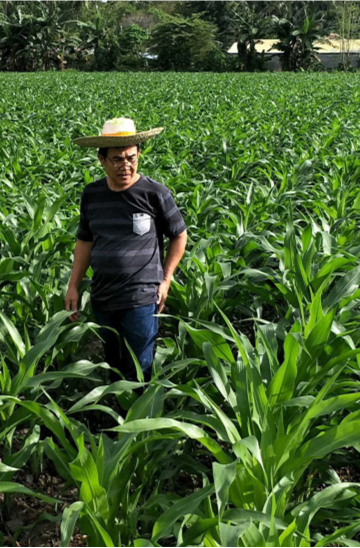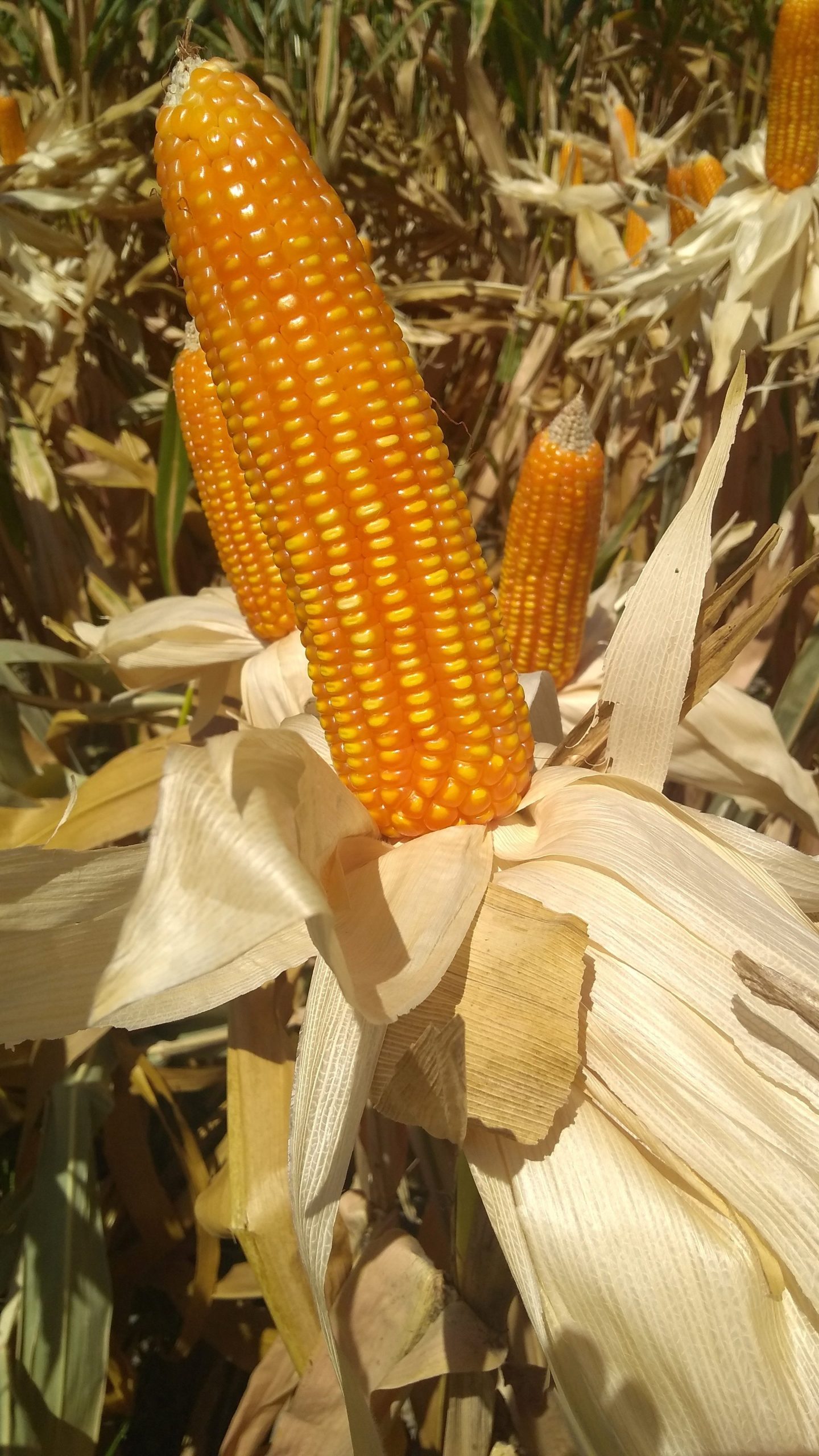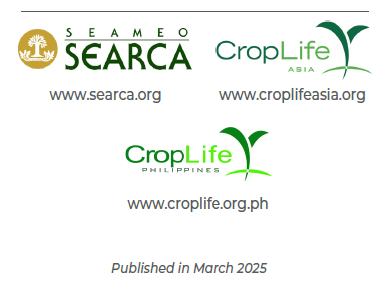A joint project of CropLife Asia, CropLife Philippines & the Southeast Asian Regional Center for Graduate Study and Research in Agriculture (SEARCA)
One of the leading voices in the Philippine agri-biotech community, Edwin Paraluman shares how Bt corn has transformed his life and the importance of supporting the agribiotech sector.
“Don’t follow my footsteps,” Edwin recalls his father’s stern advice. A corn farmer himself, his father experienced the difficulties of a farmer’s life firsthand. Following his advice, Edwin worked for a machinery company but later gravitated back to his first love – farming.
“My father and I have been planting corn since I was young. Since then, corn borers were always our problem,” Edwin shares. Their attacks became more widespread over time, which put Edwin’s livelihood at risk. Although agriculture is fulfilling, Edwin was later forced to stop planting corn due to the damage and losses caused by the corn borer.
“The arrival of Bacillus thuringiensis (Bt) corn in the Philippines in 2003 was a huge relief for us farmers,” he says. Bt corn is a genetically modified organism (GMO) that has built-in resistance to the Asiatic corn borer. Edwin was one of the first adopters of the GM crop in the country and as he planted his first five hectares of Bt corn, his father’s worries became a thing of the past.
REAPING THE BENEFITS OF BT
Edwin first heard of Bt corn in public forums and hearings organized by the local government. Since it was a new technology in the country, critics were strongly against biotech products particularly GMOs despite assurance and evidence from scientists of its safety and potential benefits. He recalled that some farmers were even hesitant to plant it because of the unfavorable views on GMOs.
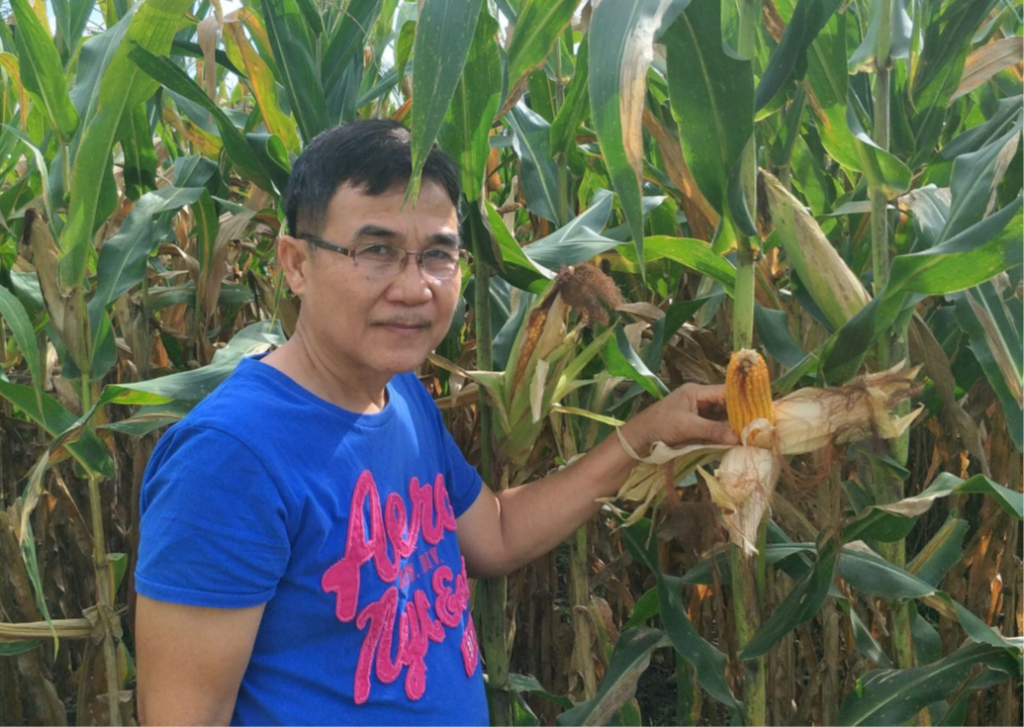
Though he was unfamiliar with the GM crop, these strong criticisms did not deter Edwin from taking a chance and trying to understand the science behind this controversial crop. “I listened to the scientists who developed Bt corn, and I saw that it was a good technology. Imagine if this crop became successful, it would surely improve the lives of corn farmers in the Philippines,” he adds.
Edwin’s vision soon turned into reality. He doubled his harvest with Bt corn – from three to four tons to seven tons per hectare. “With the conventional variety, I had to plant two to three seeds at one meter apart, which meant there was less corn to harvest. With Bt corn, I only need to plant one seed at 60-70 centimeters apart, so it increased my production,” he shares.
He was also delighted that there were no damages to his crop. “The corn borers were completely gone. It’s an amazing technology,” he adds. He also doesn’t use pesticides as much as he used to. “In the past, it’s almost like I was bathing in insecticides with the amount I used. Now, I only apply herbicide when needed, which is safer and easier.” With these savings, he was also able to buy three hectares of farmland.
Beyond the economic gains, having peace of mind is more important for Edwin. “I used to stress about the pests that might damage the cornfield. Planting Bt corn is like leaning on a sturdy wall. I can be sure that my crops are safe,” he beams.
Since then, more than 470,500 Filipino farmers and their families have benefited from planting GM corn in more than 800,000 hectares of farmland in the Philippines (Alvarez et al).
BOOSTING THE AGRI-BIOTECH SECTOR THROUGH ACADEME-INDUSTRY-GOVERNMENT INTERCONNECTIVITY
Having experienced these gains firsthand, Edwin wants to share his expertise in the hopes of helping other farmers. He has been the president of the Nursery Farmer Irrigator’s Association in General Santos City for more than 20 years and he also served as chairman of the Philippine Farmers Advisory Board and the Asian Farmer’s Network (ASFARNET)-Philippines.
But he says organizations such as theirs cannot do it alone. They would need the support of other sectors as well. The country’s agriculture sector needs the younger generation to be more involved, according to Edwin. “Students should be taught about biotechnology in schools, that biotech products and crops are safe to eat and beneficial for farmers so that they can better understand and appreciate the technology,” he adds.
He also encouraged industry partners to collaborate with scientists and experts from the academe to develop more biotech crop varieties. “The farmers benefit from the technologies that they develop such as quality GM seeds, and we look forward to more innovations that will be introduced to the farmers.”
Another crucial part of the puzzle is the government. He hopes that the country’s biosafety regulations while maintaining their rigor, can be further streamlined to accelerate the approval of biotech crops. “We are excited for the arrival of other GM crops such as Bt eggplant and Golden Rice. Hopefully, we get to plant it soon,” he states.
WHY AGRI-BIOTECH?
As one of the pioneer biotech farmers in the country, Edwin has since become one of the most fervent advocates of the sector. He passionately appeals to naysayers: “We have a continuously rising population and if we don’t adopt modern agricultural innovations, many people will go hungry. Our aim as farmers is to feed the nation, and we can do that and more with biotechnology.”
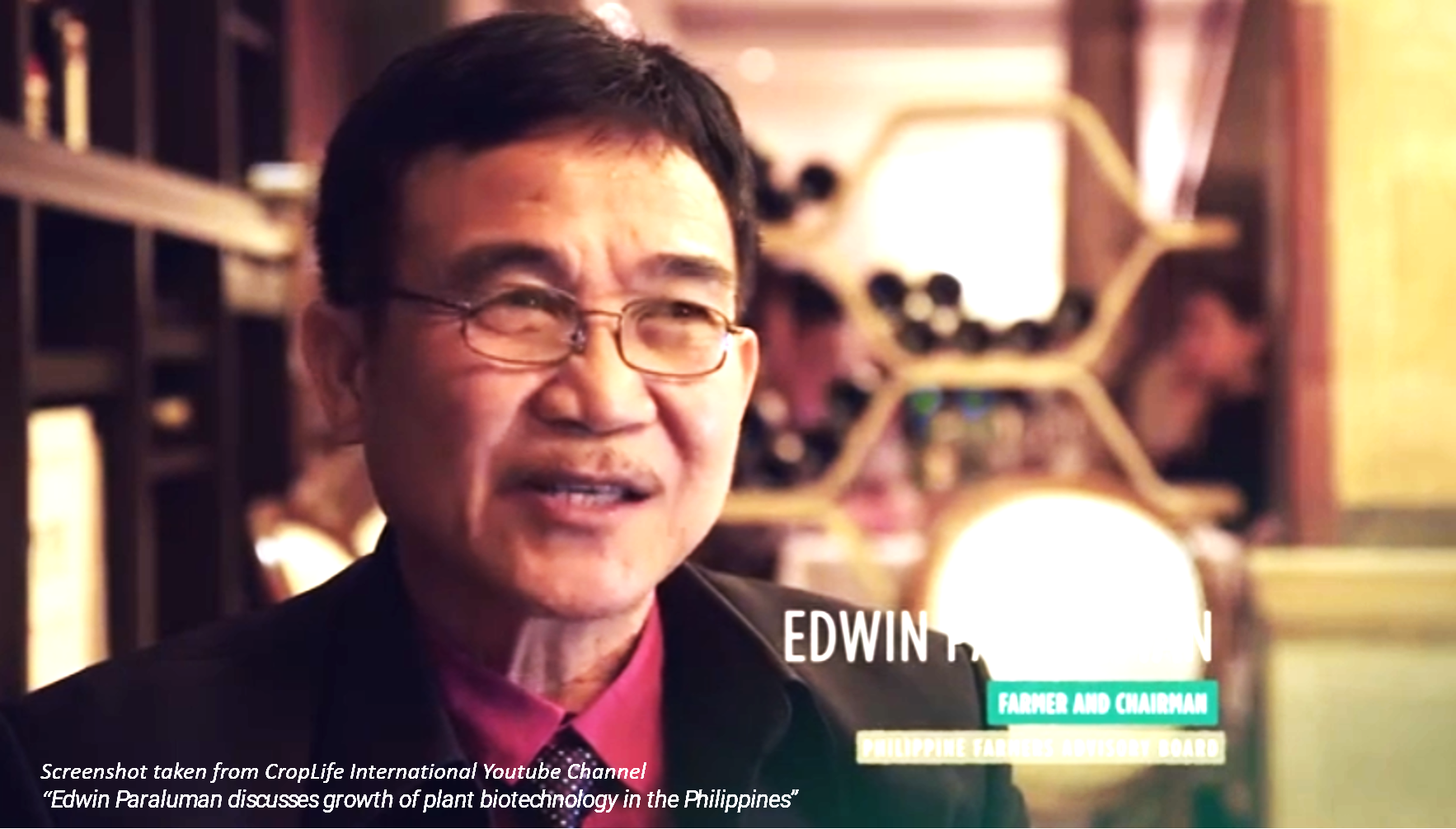
“With biotechnology, we have higher yields and better income, and it is not harmful to our health and that of the environment. It is indeed beneficial not just for us farmers but for consumers as well. It has been two decades since I sided with science and started planting Bt Corn and I have no regrets,” he concludes.

